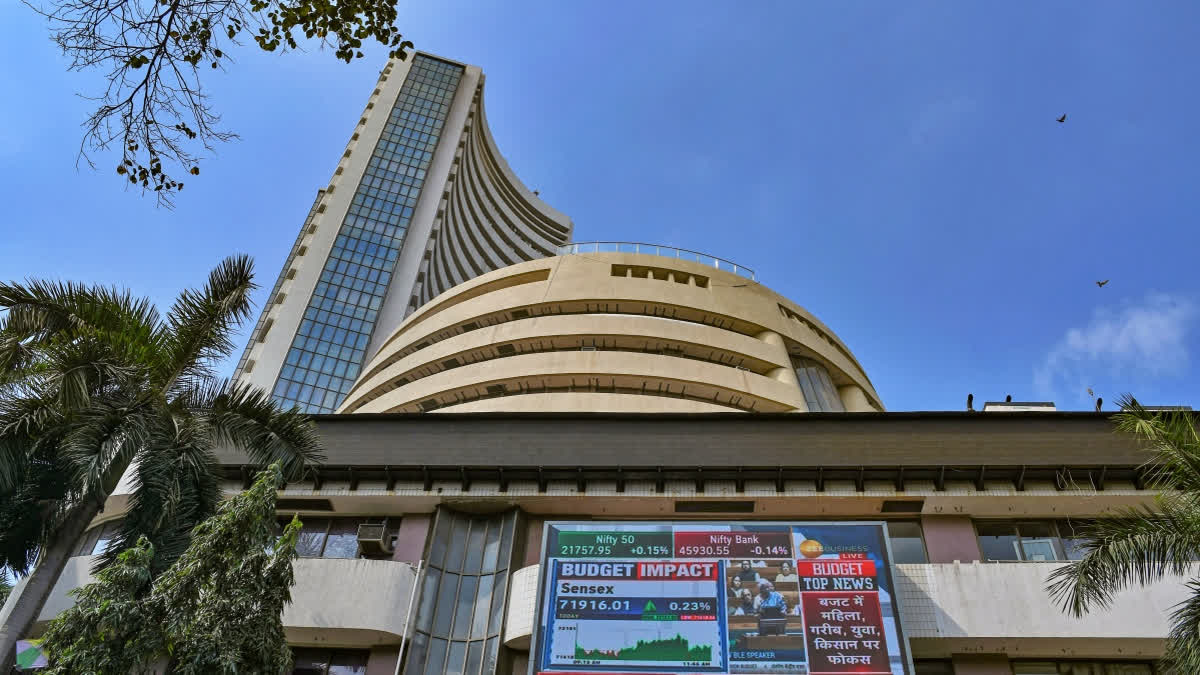Mumbai: Shares of state-owned behemoth Life Insurance Corporation (LIC) have outperformed rivals like HDFC Life and ICICI Prudential Life as it placed bets on India's growth sectors, including infrastructure, while the private sector concentrated bet on tech, consumer and consumer-related BFSI companies.
LIC's stock has gained nearly 79 per cent from Rs 620 on June 18, 2023, to Rs 1,109.15 at the closing on Tuesday, according to stock exchange data. In contrast, HDFC Life gave a negative return, if Tuesday's closing price of Rs 646.55 on the BSE is compared to Rs 666.55 a year back.
ICICI Prudential Life Insurance Co delivered a return of 12 per cent, considering its stock price rise from Rs 582 on June 18, 2023, to Rs 654.10 on June 16, 2024. Over the past one year, SBI Life Insurance shares have risen from Rs 1,314 to Rs 1,621.20, delivering a return of 23 per cent.
Capital market analysts said insurance companies make money in two ways - charging premiums for policies and then investing the premiums into assets. It is the latter that generates the bigger delta in profits, thus impacting value creation and managing risks. Global majors, including Warren Buffet-owned Berkshire Hathaway, have been successful due to their ability to make superior investments.
Most Indian insurance companies are yet to capitalise on the emergence of the country's infrastructure sector, analysts said. Indian insurance companies have concentrated investments in the BFSI, IT, and consumer sectors - all of which have been underperformers in the recent past. Only 8-10 per cent of their investments are in the infrastructure sector. This is far less when compared to global standards.
Large global insurance companies -- such as Allianz, Nippon Life Insurance, and Metlife, and other insurers like Berkshire Hathaway -- have much larger exposure ranging from 15 to 30 per cent to the infrastructure sector, analysts noted. Over the past few years, global insurers have been increasingly considering infrastructure investments as 'core' investments as the stable and long-term cash flows of infrastructure assets naturally align with the liabilities of insurers.
Additionally, infrastructure assets have defensive characteristics of high barriers to entry, strong pricing power, structural growth, and predictive cash flows, and listed infrastructure can provide investors with inflation-protected income and solid capital growth. For India, a strong government focus on the sector with large spending, supporting initiatives and encouraging policies, and improving governance, the infrastructure industry has come off-age. This has helped the infra sector to outperform all other sectors, according to analysts.
They said the high focus on retail loans, and the strategic reluctance to look at infrastructure for growth opportunities is proving detrimental for the shareholders of such companies.
SBI, with its higher exposure to the infrastructure sector, has seen its stock gain 48 per cent in the year (from Rs 592 to Rs 880.95 on Tuesday), while those of its private counterparts HDFC Bank, Kotak Mahindra Bank, ICICI Bank and Axis Bank have gained only in the range of (-)3 per cent to 24 per cent.
Kotak and HDFC Banks with negligible exposure to the infrastructure sector are the worst performing, with their shares giving a negative return, stock exchange data showed. Kotak Mahindra Bank shares were at Rs 1,895 on June 18, 2023, and closed at Rs 1,805.20 on Tuesday. HDFC Bank closed at Rs 1,619.20 on BSE on Tuesday, down from Rs 1,679 a year back.
Read More
Assam Government, Tata Group Ink Land Lease Deal For Rs 27,000 Crore Semiconductor Plant



